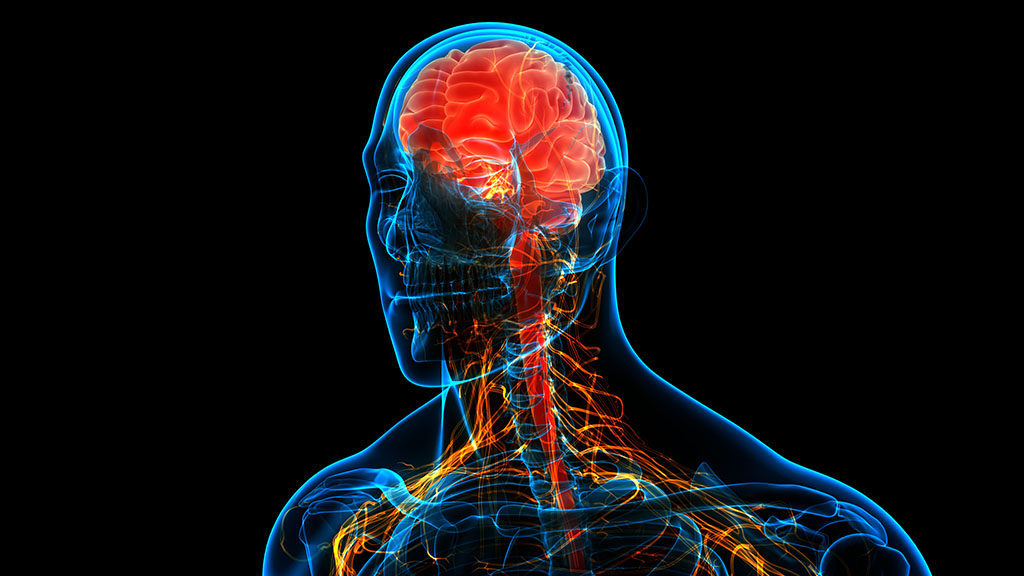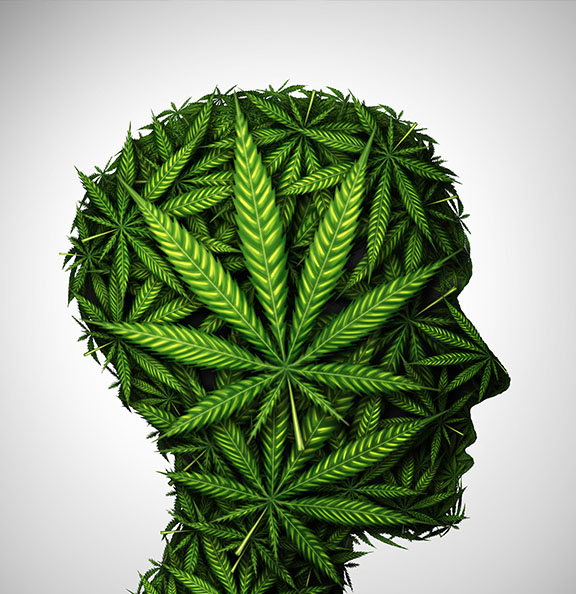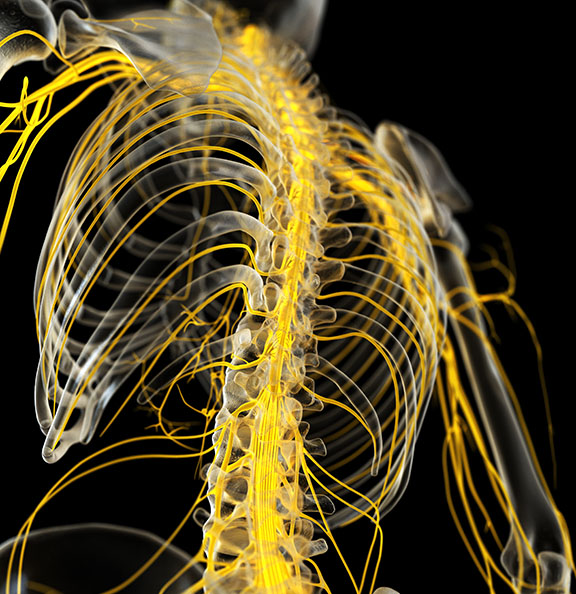What is Delta-8 THC?

What is Delta-8 THC?
Written by Paul James - published in issue 150 Weed World magazine
The National Cancer Institute (NCI) defines delta-8 THC as “an analogue of tetrahydrocannabinol (THC) with antiemetic, anxiolytic, appetite-stimulating, analgesic, and neuroprotective properties. [Delta-8 THC] binds to the cannabinoid G-protein coupled receptor CB1, located in the central nervous system… This agent exhibits a lower psychotropic potency than [delta-9 THC], the primary form of THC found in cannabis.” ¹
Since there are only a few atomic bond differences between delta-9 and delta-8 THC, the two work very similarly. One of the biggest reasons we never heard of the cannabinoid before is because it only naturally exists in a small percentage. In order to develop delta-8 THC products, companies are using extracting high concentrations of the cannabinoid - most particularly through hemp for legal reasons (more on this later).
One of the most popular delta-8 THC products is vape cartridges. A number of CBD brands have recently started developing these and you’ll also come across delta-8 THC companies.
In accordance with the science, the “high” from delta-8 THC isn’t as powerful as delta-9 THC. However, delta-8 THC still has the ability to produce quality psychoactive effects, especially in individuals who might be sensitive to delta-9. Not to mention, since there are minor atomic bond differences, many have reported a different kind of high. While these reports claim it’s very similar to delta-9, they also mention that they feel less anxious when high on delta-8.
It’s hard to tell whether these claims are true or not as they’re all we have to go off of. Since there’s a lack of research concerning how delta-8 THC affects people along and how it can be used for medicinal properties, self-reports are all we have to go off of.
How are Delta-8 THC Products Made?
To get some insight as to how delta-8 THC is extracted, Leafly did an interview with Oleum’s CEO, Graham Jennings, and Senior Lab Specialist, Aaron Palmer. ² Interestingly, in order to get the final product, the team must first convert delta-9 THC into delta-8.
They do this through a thin film distillation (also known as fractional distillation) of cannabis flower and trim. In order to isolate delta-8 THC, they use a specific set of temperatures, vacuums, and other scientific equipment. This allows for the transition from delta-9 to delta-8 to be as pure as possible and also removes residual solvents, impurities, and other unwanted contaminants.
Since the majority of dried cannabis flower contains less than 1% delta-8 THC, the only way to develop high-quality products is by extracting A LOT of the cannabinoid and isolating it. Luckily, with the cannabis industry booming, there’s plenty of buds available for specific cannabinoid extraction - from marijuana flower to hemp flower. This is especially true when considering that a number of CBD products on the market contain a cannabidiol isolate - pure CBD.
While we have the science of extraction down, there are two difficulties still facing delta-8 THC. The first is legality and the second is the research backing it up.
The cannabis plant is filled with a number of chemicals that can have different effects on the body. The most prevalent of these chemicals are known as cannabinoids with the two most abundant being tetrahydrocannabinol (THC) and cannabidiol (CBD). As more research develops into the cannabis realm, researchers are finding cannabis’ other cannabinoids to have positive medicinal effects.
One of these cannabinoids that have developed a lot of conversation is delta-8 tetrahydrocannabinol (delta-8 THC). Its chemical makeup is extremely similar to delta-9 THC - the cannabinoid that’s associated with that “high” feeling we all know and love. However, it comes with a few important differences.
Delta-8 THC products are appearing all over the cannabis marketplace and many users are claiming it provides you with a more relaxed, less anxious high. However, the legal status of delta-8 is a bit tricky and, considering that this is such a newly emerging cannabinoid, research concerning its medicinal properties is extremely limited.
We were lucky enough to get our hands on a few delta-8 products and give them a try for ourselves. Throughout this article, we’re going to inform you of everything we know concerning delta-8 and give you a bit of insight into our experience with the cannabinoid.


Delta-8 THC Legality in the United States
Under federal law, any cannabis containing more than 0.3% THC is considered a Schedule 1 substance. With that said, the only way to make federally legal delta-8 THC products is through hemp. However, lawmakers are catching onto the fact that this is a psychoactive cannabinoid. And, with that, legality is in a bit of a limbo.
On August 20th, 2020, the Drug Enforcement Agent (DEA) released the “Implementation of the Agricultural Improvement Act of 2018.” This would make the production of delta-8 THC illegal and, therefore, halt all current extraction efforts.
The big difficulty here is lawmakers only know one thing: it gets you high. What nobody really knows is whether that high is as effective as delta-9 THC or whether it has medicinal purposes. As mentioned, many self-reports claim delta-8 is less psychoactive than delta-9. However, self-reports aren’t enough to hold up in court and, until the proper research is there, it’s impossible to back delta-8 up.
What Do We Know About Delta-8 THC?
When defining what delta-8 THC is, we mentioned some of the potential medical properties it has. To put this in clearer English, recent research has found delta-8 may be able to: ³
- Protect brain cells
- Provide pain relief
- Relieve anxiety
- Stimulate the appetite
- Work as an anti-nausea
As mentioned, it’s also been discovered that delta-8 provides users with a less psychotropic high in comparison to delta-9.
Beyond this, there are only three notable researches into delta-8 and its medicinal properties:
- In 1995, a study gave delta-8 THC to children between the ages of 3 and 13 who suffered from hematologic cancer. The research discovered that the cannabinoid stimulated the children’s appetite and reduced their nausea - all while providing no notable side effects. ⁴
- In a 2004 study, delta-8 was given to mice who had recently completed a weight loss regimen. The researchers found that the cannabinoid not only increased food consumption but also improved cognitive function. ⁵
- In a 2018 study, it was found that delta-8 THC was able to reduce inflammation and pain within mice when applied topically. ⁶
As you can see, the medicinal benefits of delta-8 THC are similar to those of delta-9. However, until more research is done, we don’t know how much more (or less) effective delta-8 truly is.
Our Experience with Delta-8 THC
We received two products from Delta Effex to give a try prior to writing this review. The first was their one gram Cali Orange Kush cartridge which can be used on any 510-thread battery vape pen. The second was their Rainbow Pack Delta-8 THC Gummies.
The vape cartridge was the one we were most interested in as it was closer to replicating smoking cannabis flower. The first thing you’ll notice from taking a hit is how delicious this thing tastes. A sweet, juicy flavor that’s very similar to other e-juices currently on the market.
However, it was the effects that took us more by surprise. They didn’t hit immediately as they sometimes do with cannabis flower. After about 5 to 10 minutes, they began to creep over us in the best way possible. There’s an immediate sense of relaxation and that light-headedness many know from a traditional cannabis “high.”
We also must admit, there was little sense of anxiety. As frequent cannabis consumers, we can safely say we’ve experienced “greening out” from time to time. The experience we had with delta-8 THC didn’t lead us anywhere near there.
However, it is worth mentioning that this could merely be a case of placebo. After reading reports online of people feeling less anxiety from delta-8, we were expecting to as well. With that, we may have merely convinced ourselves we wouldn’t feel anxiety and, therefore, didn’t experience it. The mind is quite powerful in that regard and we don’t want to make any claims that this is an anxiety-free high.
What we will claim is that this was a different experience than delta-9 THC. If you’ve never experienced delta-8, the experience is very difficult to put into words as there are plenty of similarities. Still, there was a slight difference in the way we felt that we can’t stop considering.
For this reason, we definitely suggest giving delta-8 THC a try - especially while it still manages to pass through this legal loophole. If you’ve experienced paranoia from cannabis and are looking for a calmer high, this may just be the cannabinoid for you. However, we aren’t claiming delta-8 can’t cause anxiety.
Until more research comes out, you’re taking a bit of a risk when it comes to that. But considering that this remains another cannabinoid from the cannabis plant, we feel that is a risk worth taking.
Images sourced from Adobe.Stock paid under licence:















Please complete your information below to login.
Sign In
Create New Account